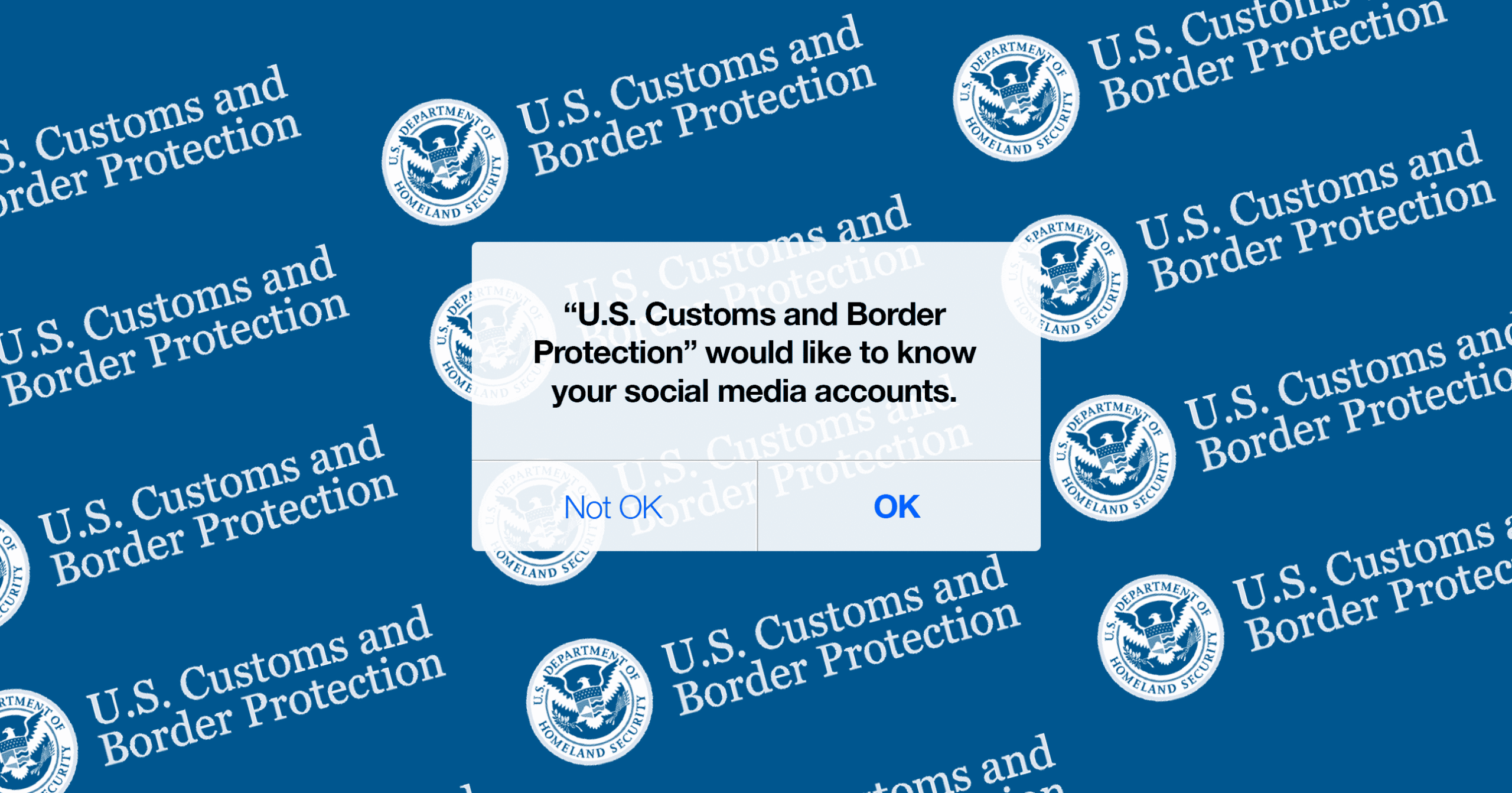The Trump administration may still be in its infancy, but it has already taken executive action to accomplish a number of its policy goals, barring refugees, cutting off travel from certain majority Muslim countries, increasing the collection of travelers’ biometrics, implementing ideological tests for entry into the U.S., and limiting the narrow application of privacy rights for non-U.S. persons.
While the orders lack specifics, the government already has one tool at its disposal. Over the last few months of 2016, we tracked a proposal to add a field for “social media identifiers” to certain visa documents by the U.S. Customs and Border Protection (CBP) within the Department of Homeland Security. The collection went into effect despite considerable opposition over the human rights risks of targeting travelers’ social media accounts. The broad collection of so-called public information, including social media posts, of travelers at the borders interferes with privacy and chills freedom of expression. And data collection at the border has already been used to target journalists, Muslims, and immigrants.
The White House is reportedly considering expanding border data collection by requiring that any visitor provide access to social media and device data. We have also seen unconfirmed reports that individual agents are already seeking access to the data from persons detained at borders under the new executive action. The increased focus on social media and digital data at the borders conforms with the new administration’s decision to target persons based solely on who they are.
The Obama administration launched countering violent extremism programs to prevent the process of radicalization, and these entailed — in practice — discriminating against Muslim-Americans, and monitoring and countering disagreeable social media content. Policies of this sort are intended to reduce appeals to violence, but they can have the opposite effect, increasing, not decreasing, feelings of marginalization and discrimination, which have shown to be factors in propensity for violence.
Instead of learning from previous mistakes, the Trump administration is doubling down. It has ordered the names of people working on these programs and is reportedly planning on replacing “countering violent extremism” with something like “countering violent jihad.” These policies will be even more removed from social welfare goals and instead look more like national security programs, and therefore seed greater division.
President Trump made clear in his inaugural address that it will be “only America first.” That’s unfortunate if what he really means to do is execute exclusionary and discriminatory policies that target our online lives, and put fundamental rights at risk. Under government pressure, tech companies under have already taken extraordinary steps to target content. There are very real human rights threats in these policies, and we will be part of the effort to ensure that tech companies, Congress, and regulatory agencies hear more about it. They need to hear from all of us that every government must heed its human rights commitments in conducting any form of surveillance or attempt at censorship. For now, we urge everyone to exercise extreme caution online, taking inventory of digital security protections and carefully reviewing the privacy settings and policies of every social media platform you use — whether you’re in the United States or anywhere around the world.
